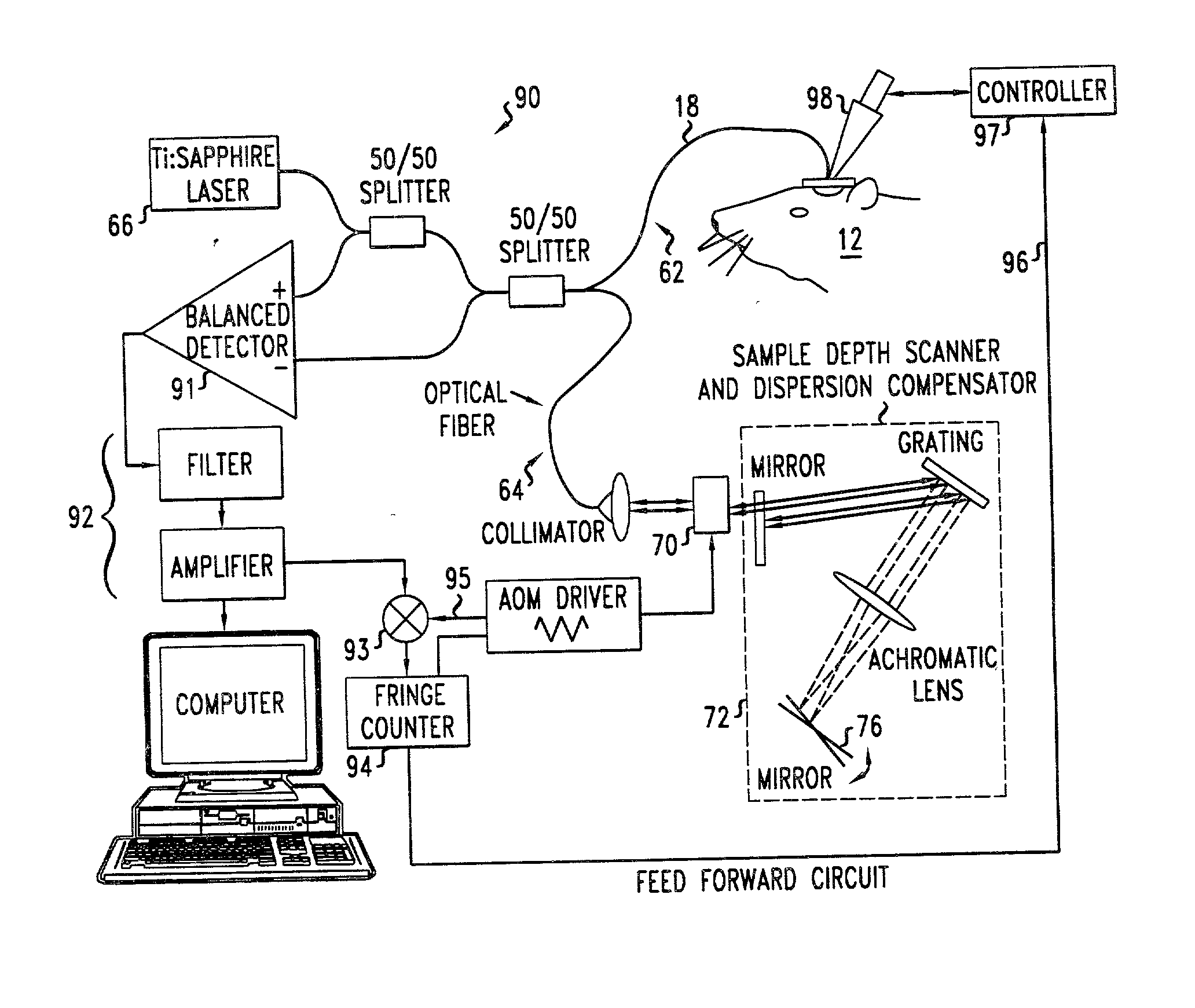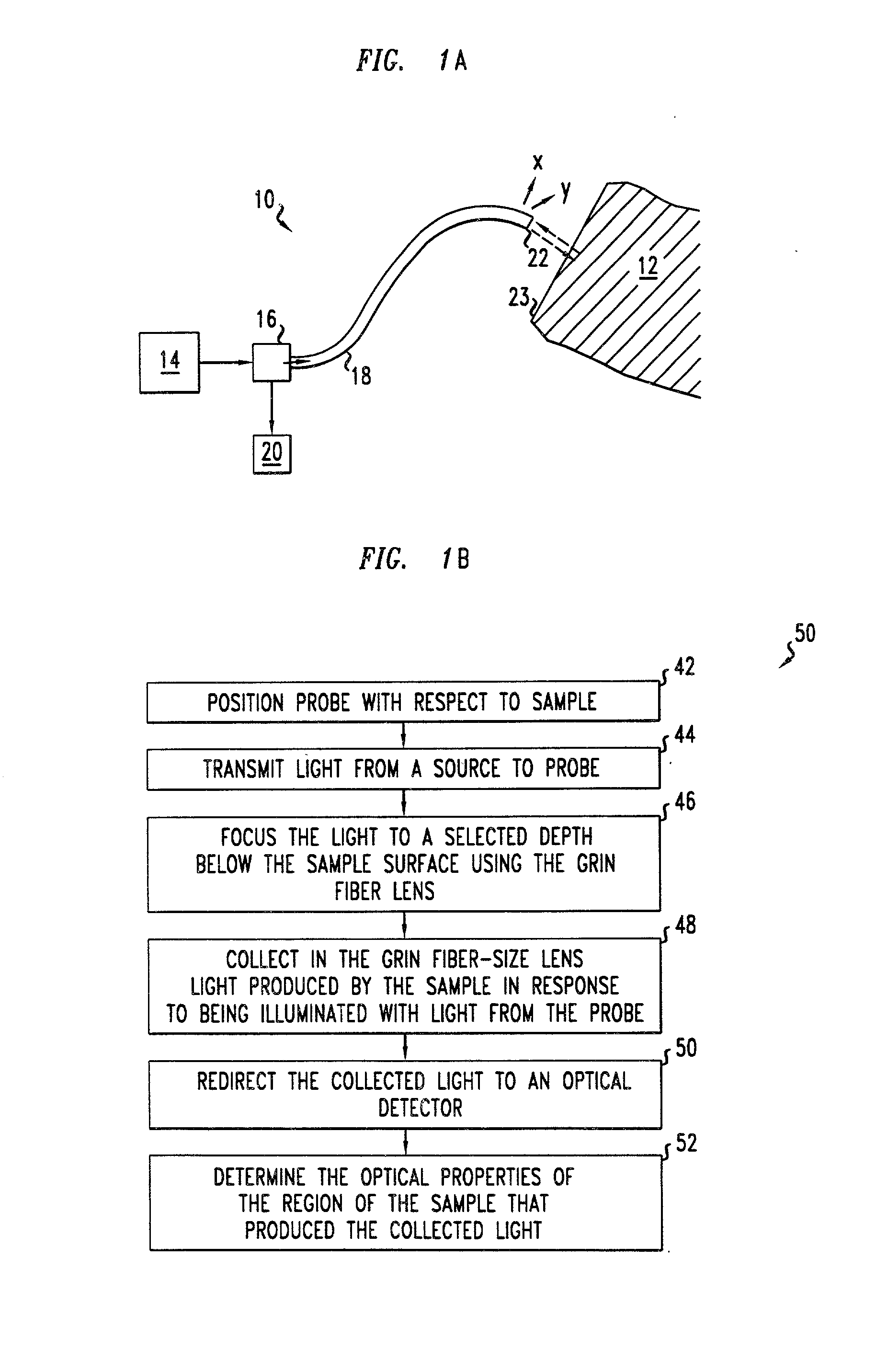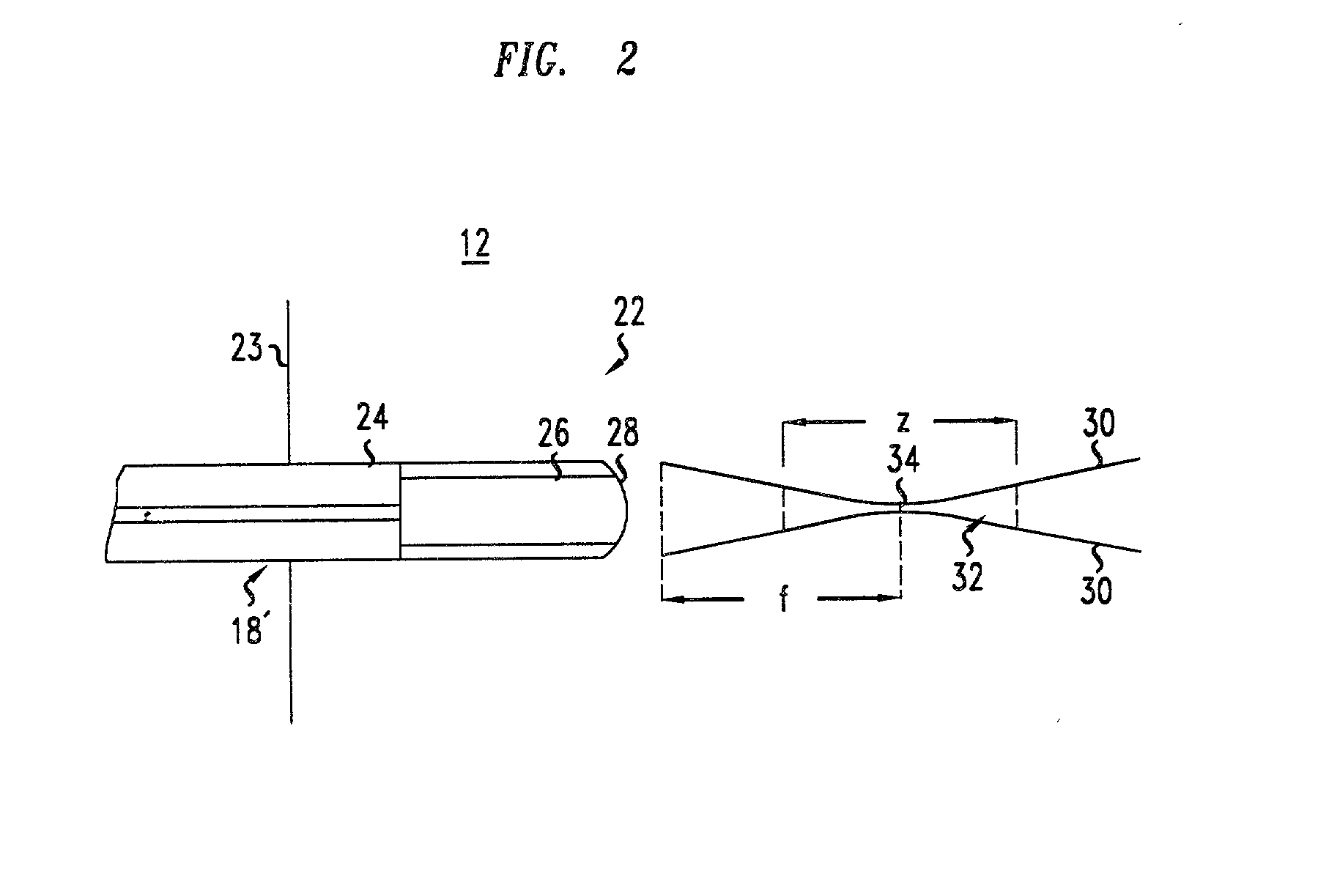Grin-fiber lens based optical endoscopes
a technology of optical endoscopy and grin fiber, which is applied in the field of optical endoscopy and imaging systems, can solve the problems of inability to achieve image resolution in in vivo imaging systems, inability to achieve image resolution, and inability to achieve tissue damage in sensitive organs
- Summary
- Abstract
- Description
- Claims
- Application Information
AI Technical Summary
Problems solved by technology
Method used
Image
Examples
Embodiment Construction
[0017] 1. Optical Micro-Probe and Imaging System
[0018] FIG. 1A shows a system 10 for optically monitoring or imaging a region of a sample 12, e.g., for endoscopic viewing of a biological tissue. Various embodiments of the system 10 determine the velocity and / or three-dimensional position of the region being monitored or imaged, e.g., via tomography. Such monitoring or imaging functions are useful for medical diagnostics and treatment, e.g., invasive imaging of anomalous tissue structures in vivo and monitoring of tissue motion during other medical procedures.
[0019] The system 10 includes a source 14 of IR, visible, or ultraviolet light, an optical splitter or circulator 16, an optical micro-probe 18, and a light detector 20. Exemplary sources 12 include monochromatic sources or multi-chromatic sources, e.g., a pulsed Ti-sapphire laser with a low coherence time of about 10.sup.-15-10.sup.-13 seconds. The optical splitter or circulator 16 directs a portion of the light from the source...
PUM
 Login to View More
Login to View More Abstract
Description
Claims
Application Information
 Login to View More
Login to View More - R&D
- Intellectual Property
- Life Sciences
- Materials
- Tech Scout
- Unparalleled Data Quality
- Higher Quality Content
- 60% Fewer Hallucinations
Browse by: Latest US Patents, China's latest patents, Technical Efficacy Thesaurus, Application Domain, Technology Topic, Popular Technical Reports.
© 2025 PatSnap. All rights reserved.Legal|Privacy policy|Modern Slavery Act Transparency Statement|Sitemap|About US| Contact US: help@patsnap.com



